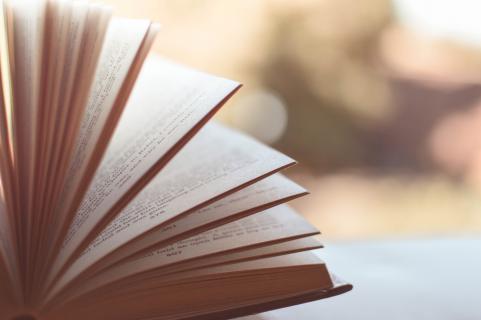
Selah Saterstrom has written three novels (Slab; The Meat and Spirit Plan; and The Pink Institution), all published with Coffee House Press. She has an MFA from Goddard. And she's the director of creative writing at the University of Denver. But she doesn't consider herself a writing expert. Lighthouse intern Sarah Krum recently found out why.
Q. As one of Lighthouse’s resident hybrid and experimental forms experts, where do you see the benefit in hybrid forms over other traditional styles of writing? When you are mixing genres or visual art with words and so on, philosophically, are you choosing to do so because it feels closer to object truth or experience? Or is it just more accessible in some way?
A. Well, let me begin by saying: I am not an expert concerning genre or anything to do with writing. I do not believe language is to be mastered, or even that it can be (though this is the ongoing dream of capitalism).
Language’s guts are composed, in part, of flux. The way it moves, skips across surfaces, broadcasts the signals of nuance, remembers, forgets, remembers…like the sea, ever-shifting. It moves through us, animates us, and we animate it. I don’t want expertise. I want something more. More erotic, more of eros (with its dangling etymological threads, fittingly, of uncertain origin).
I am wary of placing one form over another—the hybrid over the traditional or vice-versa, for example. I feel one of the gifts lurking in the hybrid is that it inherently offers alternatives to such categorization. Trespass and wilderness are part of its nature. We can talk about the hybrid as a form, and this can generate useful conversation, but as a writer/maker, I often experience it more as a condition that expresses through language. I never set out to write a “hybrid novel” even though my work has been labeled as such. I set out to do the work of the book, whatever that is, and this has always been a process of revelation.
That doesn’t mean one shouldn’t experiment with forms or that hybridity must erupt from within the text (rather as a constraint put in conversation with content). Try all the forms! I’m not sure I can ever stop, because for me such experimentation is really a way of listening. I often drop writing—prose or otherwise—into three different forms, for example, as a sort of standard practice. Even though I often put the text back into prose blocks, I’ll spend time with it as a series of couplets, as haibun, and so on. This always reveals information about my content and elucidates places that need editing.
Q. What purpose do you think genres serve as a whole? Should genre be purely a jumping off point or do you think it is useful in a sense to categorize and separate different kinds of literature?
A. I think of genre as another handle, another way of talking about the work. It can be useful and can generate quality discussion. That said, as a maker of work (rather than say, a literary agent), that is sort of where I leave it.
Writing my first book, I experienced an urgency that taught me that the need to make the work, to the best of my ability, outflanks my need to know what the work is, even in terms of formal considerations, at the beginning of the process. As I mentioned a minute ago, emergence of form in the work always feels revelatory to me.
I’ve been thinking a lot about the relationship and etymologies (how they conjunct and are in conversation) of the words genre and gender. I think I feel similarly about both words.
Q. You grew up in Mississippi and a lot of your work takes place in Mississippi or the South. Has living here in Colorado informed your work in a new way at all?
A. This is such a great question to be asked! I’ve been here a decade and am still pinching myself.
I am sure that living in Colorado has informed my work in new, amazing ways. In ways I don’t yet understand. How could it not? My heart has been born, died, and reborn here, in this light, and the light in Colorado is different from other lights; it is not like the humid, ghost-drenched light of the South for example, and I very much believe light informs everything.
There is a bright acuity in Colorado light which hums. I hope my sentences have caught this influence! Colorado light invites a wide-eyed looking at the edges of the body. I’d like to write a paragraph that can hold that vibration. Aren’t sentences trickster mirrors? Right when you wash up on the shore of an interior reflection, you realize you have, in fact, passed through a portal.
Selah Saterstrom is teaching Experimental/Hybrid Forms starting August 16.

